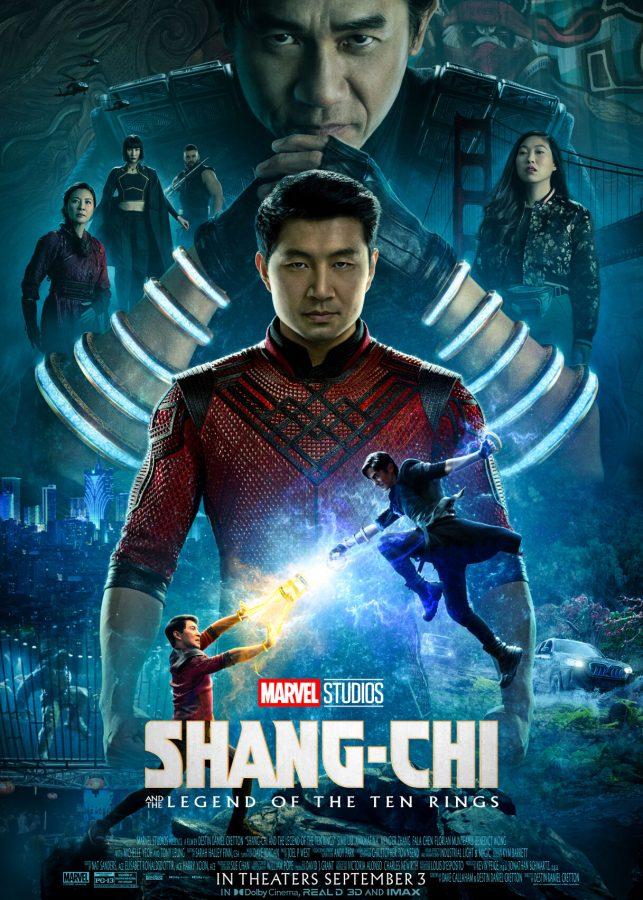Going to the movies has been a rare occurrence for me lately. I suspect that this is true for many others. So, when I went to see “Shang-Chi and the Legend of the Ten Rings”, I was practically desperate to have a fun time. Seeing a bomb after a year and a half indoors would have been devastating. Luckily, I really enjoyed it.
I will try to stay clear of spoilers in this review, as the film just came out. So, to give a spoiler-free plot summary of “Shang-Chi”, our titular hero (played by Simu Liu) is the son of Xu Wenwu, a legendary, centuries-old figure with a criminal empire. He raises his son to follow in his footsteps, training him in martial arts. Shang-Chi eventually runs away from his father, hoping to create a new life for himself. However, ten years later Shang-Chi must confront Xu Wenwu in an international adventure.
To put it plainly, it’s the kind of fun someone can expect from a blockbuster-Disney movie. Those looking for subversions of the genre or graphic violence will find themselves disappointed. With a few exceptions (mainly visual—but more on that later), it’s standard fun for Marvel. And there’s nothing wrong with that! It’s adventurous escapism, and a good time at the movies.
Shang-Chi as a character was heavily inspired by the Bruce Lee movies of the 70s. His comic was titled “Master of Kung-Fu”. So, it figures that the fight scenes in the movie are extremely well done. If you’ve seen the trailers, you know there is a scene that takes place on a bus. I had seen the trailers, and was waiting for the sequence, but was not expecting it to be as exciting as it was. The focus was less on the realism and brutality of fighting and instead on choreography. The characters’ movements looked dance-like, as if they were more reflections of an internal/emotional back and forth than a desperate struggle to stay alive, which brings us to the movie’s other focus.
As evident by the plot synopsis above, the film heavily focuses on familial relationships. Whether it’s Shang-Chi’s relationship with his father, sister, or mother, there is a strong exploration of what grief can do to a family. Will it irreversibly change people? Can grief ever be conquered completely? What is our responsibility to those who remain? All of these things are at least briefly explored.
This isn’t the only Marvel movie to touch on family. “Thor”, “Guardians of the Galaxy”, and even the Avengers movies all do so, too. Part of the draw to superhero-team movies is the dynamic, and seeing people with great power have the same relationships that we do. However, this movie went beyond the surface level familial themes of “Avengers: Endgame”. It’s a true part of its DNA. Xu Wenwu, as played by Tony Leung, was a great villain with an unusual motivation. Personally, I’d say it handled family dynamics nearly as well as the “Guardians of the Galaxy” films, but that’s just a matter of opinion.
The visuals in this movie were a breath of fresh air from the usual big cities and bigger explosions that are usually found in summer blockbusters. I don’t want to spoil all of the visuals, but they were generally influenced by Asian cultures. The dragon (as seen in promos for the film) is not so much of the Hobbit/Harry Potter variety, but was much more colorful. None of the CGI was Thanos-level realistic, but was still energetic. I had a lot of fun seeing the fantastical worlds and creatures as they were introduced.
So far, “Shang-Chi and the Legend of the Ten Rings” has made a great deal of money, breaking Labor-Day weekend records with its opening weekend. The nearly all-Asian cast is an accomplishment in the superhero genre that is being celebrated internationally in theaters. If you’re into action/adventure movies, and are comfortable going into theaters, then go and see it. It seems like everybody else is.

